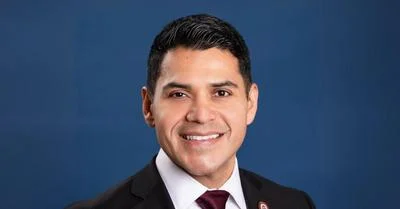Chronic sinus problems are one reason that people may begin snoring. | Andrea Piacquadio/Pexels
Chronic sinus problems are one reason that people may begin snoring. | Andrea Piacquadio/Pexels
• Chronic sinusitis can lead to snoring.
• Snoring can cause other medical issues, including higher risk for heart attacks and strokes.
• A balloon sinuplasty can fix chronic sinus problems.
Chronic sinus problems are one reason that people may begin snoring, according to Kaplan Sinus Relief. Short-term effects of snoring include fatigue during the day, headaches, chest pain during the night and a sore throat in the morning.
Snoring happens when your body is unable to breathe properly through the nose while sleeping, which can happen when the sinuses are inflamed or infected. Breathing through the mouth while sleeping causes the airways to narrow and the soft tissue in the throat vibrate, causing the snoring sound.
Other factors that might cause people to snore include drinking alcohol, taking muscle-relaxing sedatives, certain hormones caused by pregnancy or being overweight, according to Cleveland Clinic. Snoring over a long period of time can lead to health problems, including a lower blood oxygen level, high blood pressure, Type 2 diabetes and higher risk for heart attacks and strokes.
At-home remedies for snoring include sleeping on your side, sleeping with your head elevated or using nasal strips. If none of those methods help you stop snoring -- and your snoring is being caused by chronic sinusitis -- a balloon sinuplasty procedure can clear your sinuses for long-lasting relief.
The procedure typically lasts approximately 20 minutes, during which an ear, nose and throat (ENT) physician will insert a tiny balloon into your nasal sinuses and inflate it, allowing the sinuses to open up and helping you to breathe more easily. The procedure is minimally invasive, pain-free and done in the office.
Dr. Brian Lee of Scottsdale Sinus and Allergy Center said snoring can be a symptom of chronic sinus problems, which can be resolved by undergoing a simple balloon sinuplasty procedure.
"Usually patients with chronic sinusitis have issues breathing through the nose," Lee told Grand Canyon Times. "Most patients come in saying that they're chronic mouth breathers, they don't sleep very well, they wake up with a really dry mouth, they start snoring more or louder. A lot of that just comes down to their nose being (clogged) and not functioning properly. And that can definitely impact the quality of their sleep."
For more information about the symptoms of sinusitis and allergies, take this Sinus Self-Assessment Quiz.






 Alerts Sign-up
Alerts Sign-up